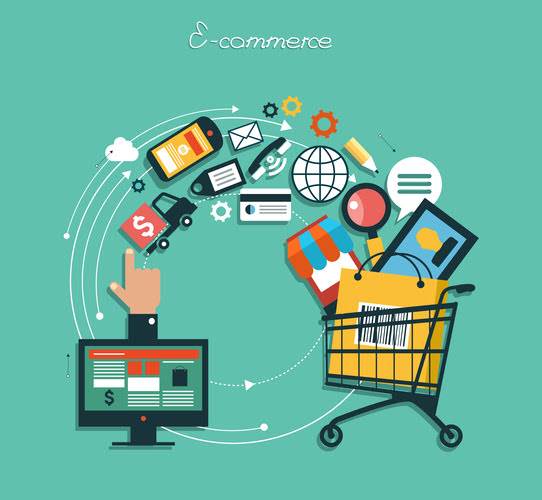Содержание
Those systems are also able to ensure that shipping-related payments reach the right parties. The identities of those parties are verified through the government’s Know-Your-Customer program that was launched a few years ago to combat fictitious accounts and money laundering. Gupta said the Mumbai Port Trust has projected savings of $18.2 billion over two years from using blockchain technology in supply chains.

Lastly, improved efficiency is another answer to why blockchain is important. The cause is better security, intermediary removal, and overall better processes. Transactions also take seconds rather than a week to complete, especially international transactions. Blockchain uses cryptography to add a layer of security to the data stored on the network.
Blockchains Potential Starts With Security
These features make blockchain irresistible in diverse scenarios and mark itself as the best possible solution. Or maybe you have asked how it is going to impact our daily life or the lives of different professionals working in different sectors. As pharmaceutical products move through the supply chain, every action is recorded.
Information is stored across a network of computers rather than a single server, making it difficult for hackers to view data. Blockchain can bring big social benefits to emerging economies -- but it has limitations, note experts at a Wharton forum. 6 emerging market blockchain startups will receive up to $100,000 to develop an open source prototype. UNICEF Ventures also participates in collaborative cross UN agency initiatives & projects, such as the United Nations Innovation Network , with the aim of collectively experimenting and sharing learnings around blockchain. Explore our blockchain capabilities you can implement today and alliances to join to future-proof your business.

The findings are considered quantifiable results in reporting to the NGOs and other international organizations that are financing that project, she added. “Blockchain is not magic, but it has interesting capabilities,” Miller continued. Although there is “a lot of hype and excitement about blockchain,” she said, the technology is still in the early stages of implementation, and testing of its potential applications is underway. Notably, the Wharton India Economic Forum met around the 10th anniversary of the introduction of the blockchain. It was on October 31, 2008 that a certain Satoshi Nakamoto published a white paper introducing the cryptocurrency bitcoin — and blockchain, its underlying technology.
Imagine a proof of identity as simple as saying "I am." This global alliance puts users in control of their digital identity data. Glean insights from multiparty systems already in play today to inform how you will unite your stakeholders around a shared data construct. The global blockchain market improvement to $20+ billion in 2023 is another sign of how rapidly businesses are adopting blockchain, as per this blockchain presentation. At the core, you can find the blockchain’s importance by going through its key features.
Why Blockchain Is Important For Business
How blockchain works is explained best by understanding the communal aspect. It is based on what’s called distributed ledger technology. Everyone in the peer-to-peer network making up these ledgers can look at the same information in individual blocks. Blockchain is essentially a growing list of so-called “blocks” , which form a “chain” in a peer-to-peer why blockchain is important network. Participants in the network verify or validate the blocks, eliminating the need for a trusted entity like a regulator or an accounting firm to authenticate the information in them. According to experts, the blockchain is secure and tamper-proof by design because transactions cannot be changed once the network has verified them.
- Begin with understanding what blockchain is, why it matters, and the future of multiparty systems.
- Transactions also take seconds rather than a week to complete, especially international transactions.
- Companies can also utilize it to ensure that the end-user can interact with the processes with full or partial transparency.
- Analytics can help federal agencies unlock insight from blockchain activity, building transparency and confidence in these systems.
- The findings are considered quantifiable results in reporting to the NGOs and other international organizations that are financing that project, she added.
IBM Food Trust™ is the only network to connect participants across the food supply with a permissioned, permanent and shared record of data. Blockchain for business uses a shared and immutable ledger that can only be accessed by members with permission. Network members control what information each organization or member may see, and what actions each can take. Blockchain is sometimes called a “trustless” network — not because business partners don’t trust each other, but becausethey don’t have to.
Ibm Blockchain Platform
Right now, products can be hard to track due to the unavailability of real-time tracing. Also, it will become impossible for malicious actors to change goods in any form or factor. For businesses, it is all about efficiency https://globalcloudteam.com/ if they can keep their accuracy intact. Some companies have already shown their interest in blockchain. The Dubai Blockchain Strategy is one example where the government wants to change its city with the help of blockchain.

With the UN Innovation Network, UNICEF is supporting the development of an interagency platform that allows any UN entity to learn and experiment with blockchain. Central bank digital currency has been actively explored to prove security, scalability and resiliency of the systems and technology. Explore some of our most inspiring collaborations with enterprises, governments and NGOs dedicated to positive social impact. A new family of Privacy Preserving Computation techniques are poised to disrupt enterprise data exchange and converge ecosystems. Effective governance must guide the growth of multiparty systems to meet the highest requirements of regulated industries. Also, each block on the network carries a unique hash, which means that no data can be forged or changed by malicious actors or hackers.
Exploring Blockchain Applications To Accelerate Impact
That approach also ensures that the company is less likely to be targeted by regulators for fines and fees, she said. According to Miller, the role of the government is “keep people safe,” and that that maxim applies to India as well. “You want to clear the path for innovation, but prevent people from being taken advantage of in an unethical way, and preventing bad actors from causing harm.

Even as blockchain technology has made inroads into developing countries like India, inadequate digital infrastructure and relatively low financial literacy may be obstacles. However, even more than those, outdated laws and rules are proving to be the biggest impediments to achieving blockchain’s full potential. UNICEFVentures has hosted SURGE blockchain events around the world, from South Africa to Thailand and beyond. Supply Chain lacks transparency, accurate asset tracking, and enhanced licensing. Blockchain can improve traceability, transparency, and tradability and have a massive impact on every sector that relies on the supply chain.
India is a frontrunner among emerging economies in embracing the blockchain, according to Kavita Gupta, founding managing partner of ConsenSys Ventures, the venture capital arm of ConsenSys, a blockchain software firm. Building trust between trading partners, providing end-to-end visibility, streamlining processes, and resolving issues faster with blockchain all add up to stronger, more resilient supply chains and better business relationships. Plus, participants can act sooner in the event of disruptions. In the food industry, blockchain can help ensure food safety and freshness, and reduce waste.
How Does Blockchain Work?
Be it asset management or energy management; there will be decentralized services for every sector out there. This will give people unprecedented access to the options that are currently not available in the market. This article discusses all the reasons why blockchain is important, based on different practical real-life use cases in different sectors.
There are popular blockchain-as-a-service services that are trying to solve the demand. The removal of intermediaries is a boon for business as it not only reduces cost but also reduces the point of contact — improving efficiency and growth. This opens a lot of opportunities for platforms that need immutable traits to make their system more functional in a highly competitive market. Immutability enables companies to ensure that there is no hamper done to the packages in transit. As blockchain is immutable, it is not possible to alter the package information in any way.
The technology promises to speed up and reduce the cost of transactions, and boost financial inclusion by providing more opportunities to farmers. This is what makes the technology very difficult to hack. No one computer controls the data and to change it in one block would mean the entire chain needs to follow suit. Everyone has a copy that is automatically updated; alterations need to be verified by everyone in the network.
They want it to become the first city that will be powered by blockchain. Now that we understand the importance from a general point of view. For the most part, it is the business that benefits from blockchain the most.
Why Web3.0 blockchain technology is driving a six trillion dollar market - TechRepublic
Why Web3.0 blockchain technology is driving a six trillion dollar market.
Posted: Mon, 29 Aug 2022 07:00:00 GMT [source]
Smart contracts – self-executing agreements based on blockchain technology – automatically trigger actions or payments once conditions are met. In the near future, they will use real-time information, such as asset GPS data, to trigger an event, such as a transfer of ownership and funds. Accenture Blockchain and Multiparty Systems specializes in supply chain, digital identity and financial services. In each of these domains, we have built incredible foundational capabilities, confirmed proofs of value, and helped business ecosystems implement the first wave of multiparty systems.
Known Traveler Digital Identity Ktdi
Blockchain lets users pinpoint where they need to work on “non-blockchain digitization” of specific aspects of the process, she said. For example, IBM is helping Walmart use blockchain with its suppliers in order to meet food safety requirements. IBM built a simple app where farmers could scan and send information on the produce they ship to Wal-Mart. “The app we built is not complicated and it was not a blockchain app, but it was a single piece of digitization that made the blockchain app work,” she said. Accenture discovers data sharing powered by blockchain and multiparty systems to help build trust in a new digital world. Transactions can even be automated with “smart contracts,” which increase your efficiency and speed the process even further.
Healthcare Blockchain Benefits
The banking and finance sector can be drastically improved by blockchain. Digital financial institutes have the most benefits when it comes to smart contracts. The benefits come from digital assets, programmable money, and smart contracts. There are plenty of use-cases that can be used in the banking and finance sector. Especially, trade finance blockchain has gained a lot of traction in recent times. You can join existing blockchain networks that are transforming industries by bringing revolutionary trust and transparency to supply chains, global trade, international payments, our food supply, and much more.
See how blockchain is solving problems for businesses and industries and get inspired yourself. Accelerate supplier discovery and onboarding with Trust Your Supplier, the blockchain network built to transform supplier management and reduce risk. Blockchain increases trust, security, transparency, and the traceability of data shared across a business network — and delivers cost savings with new efficiencies.






